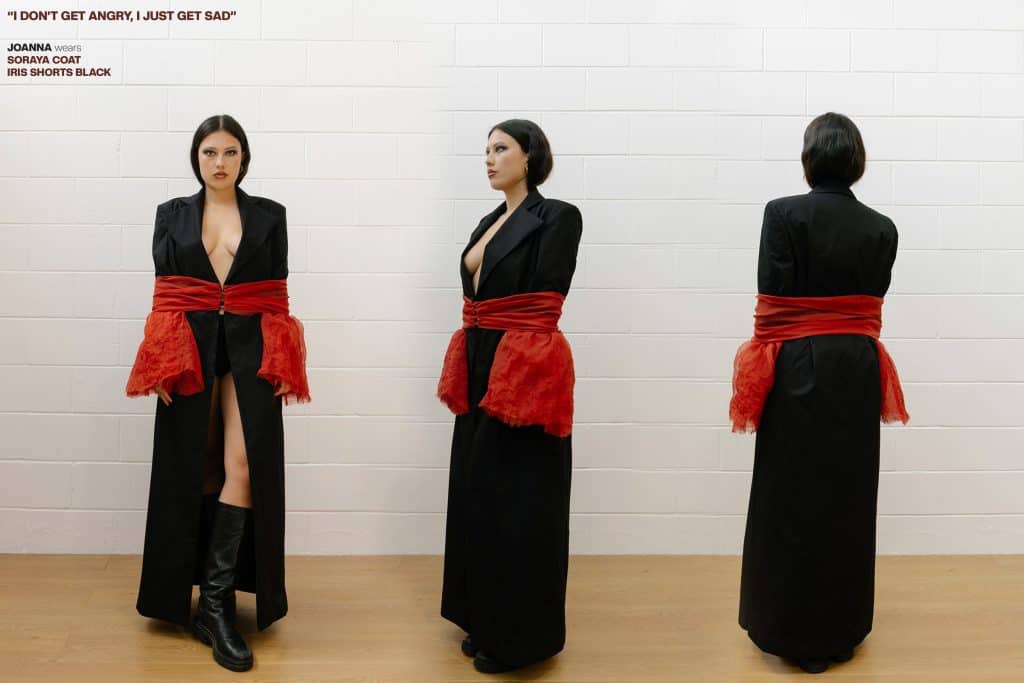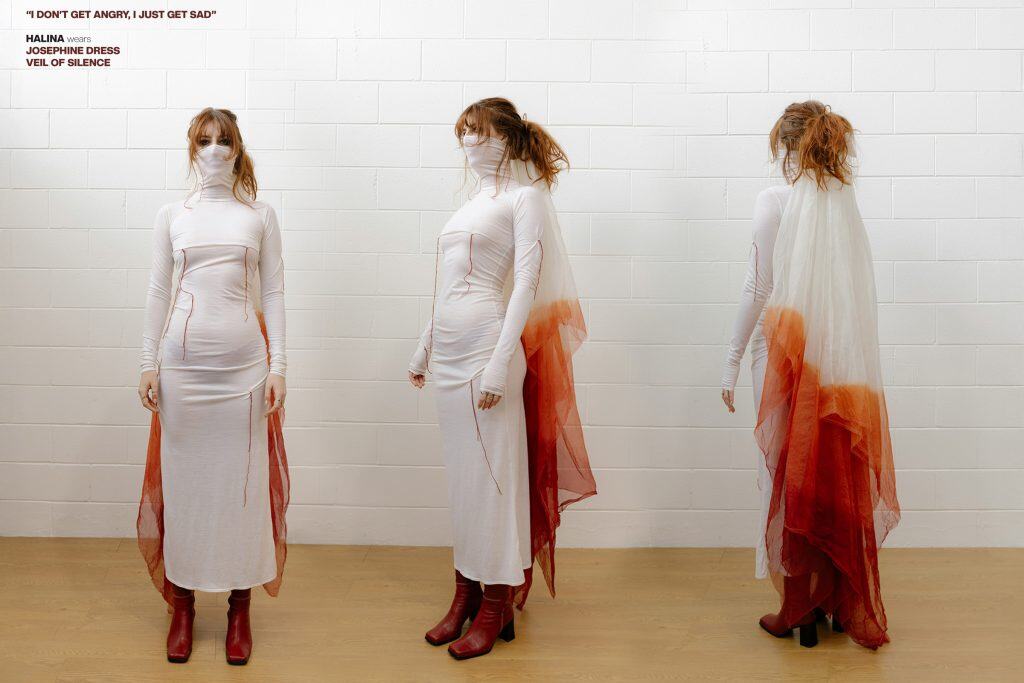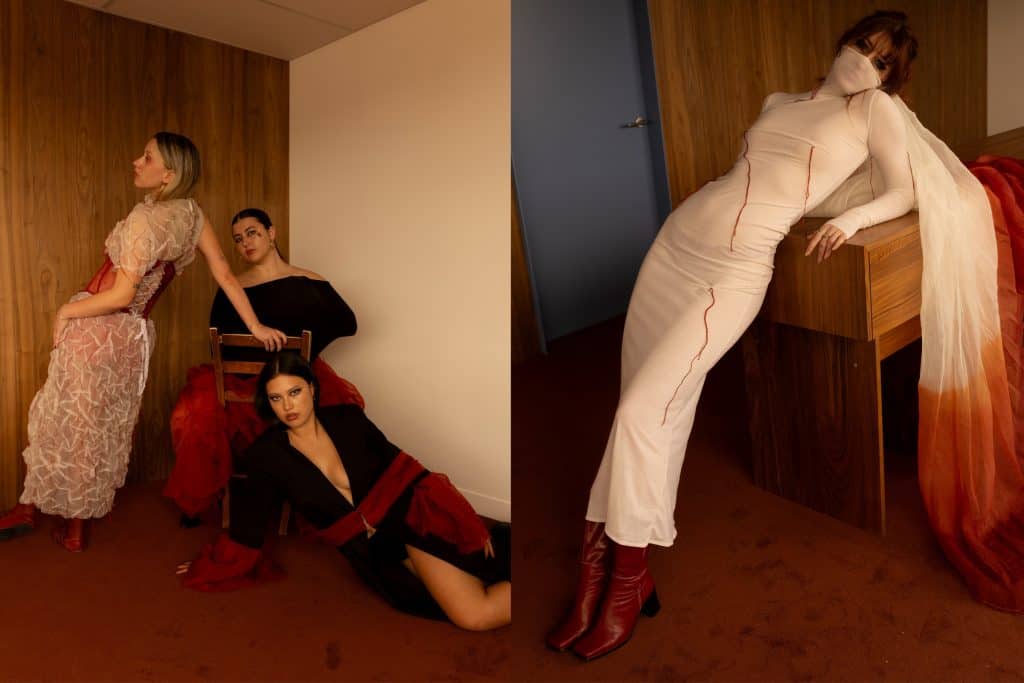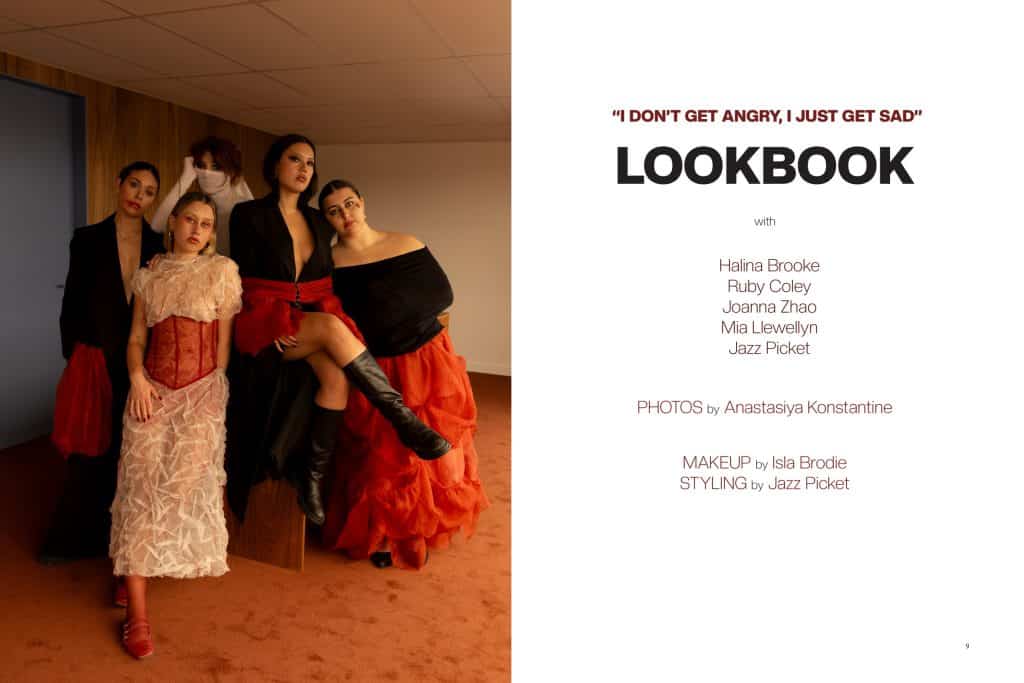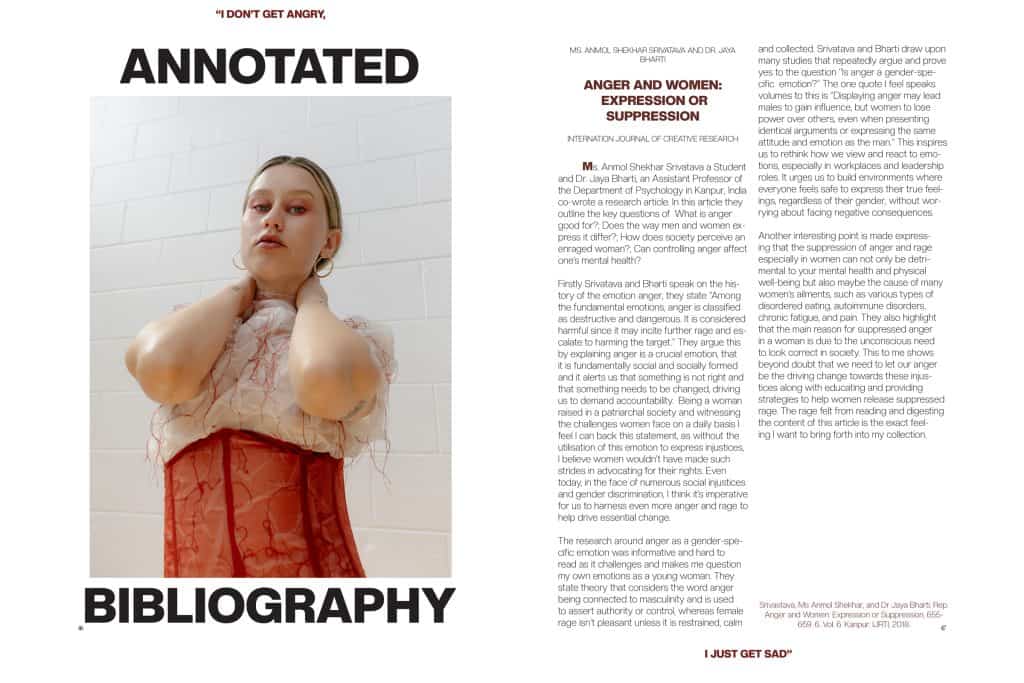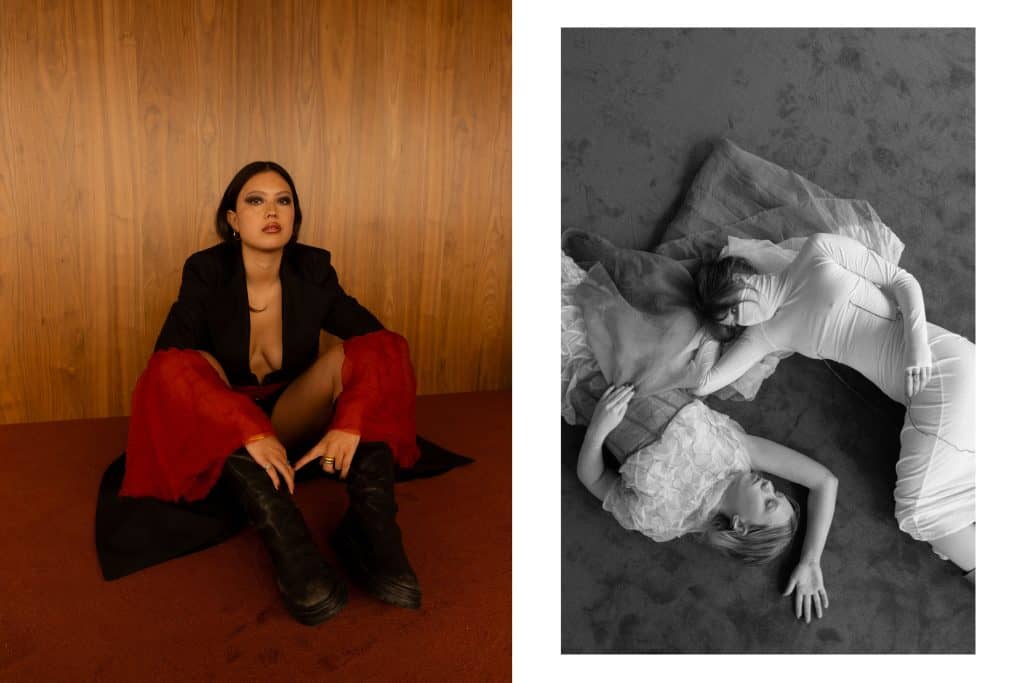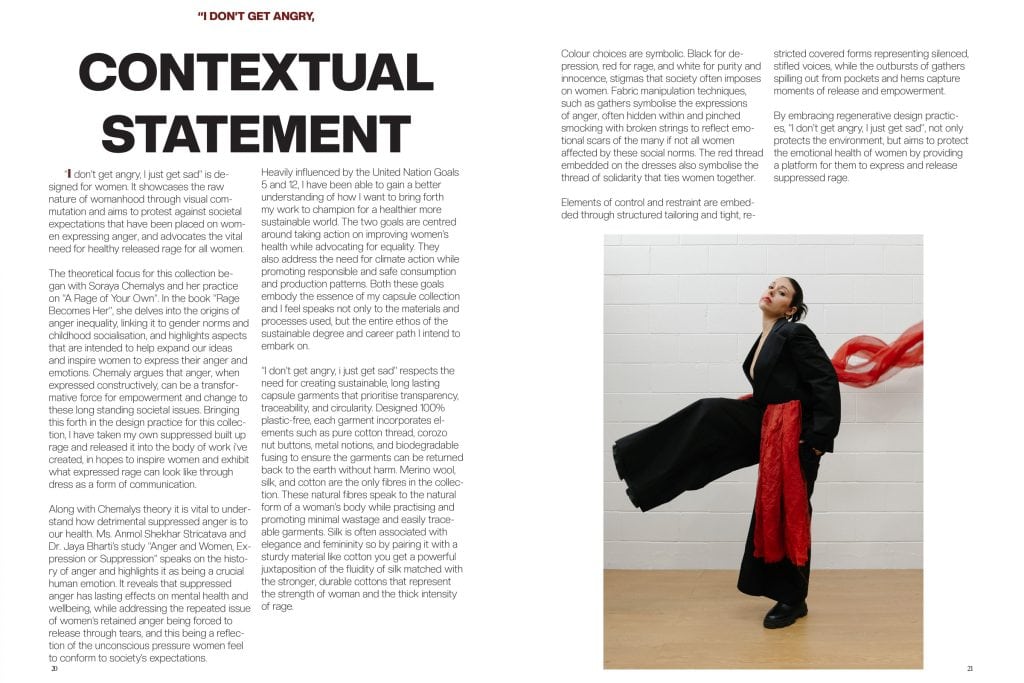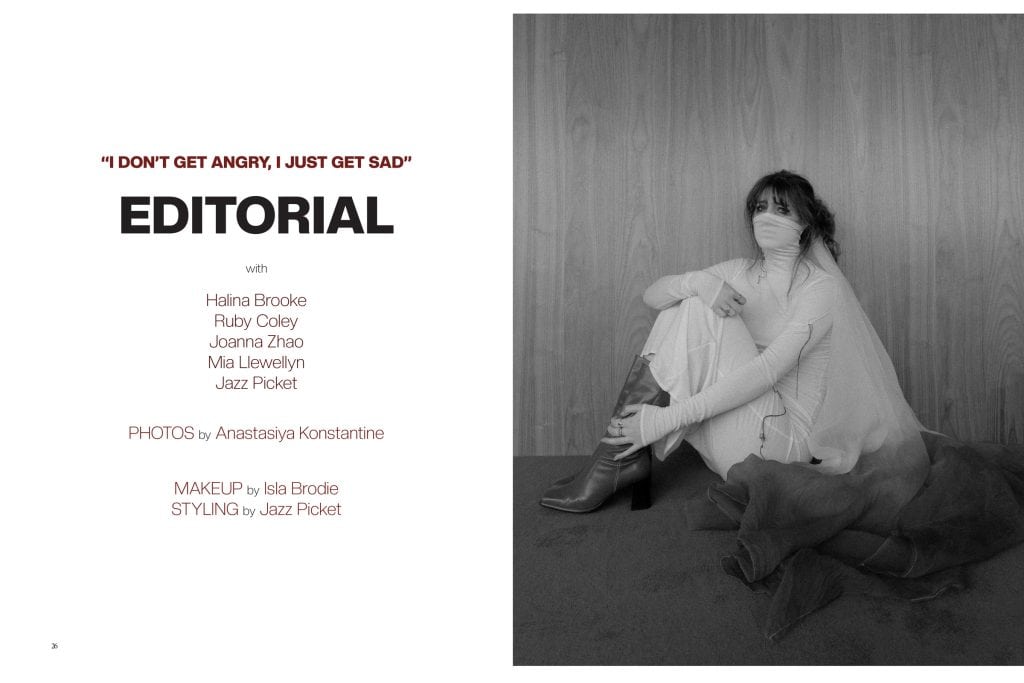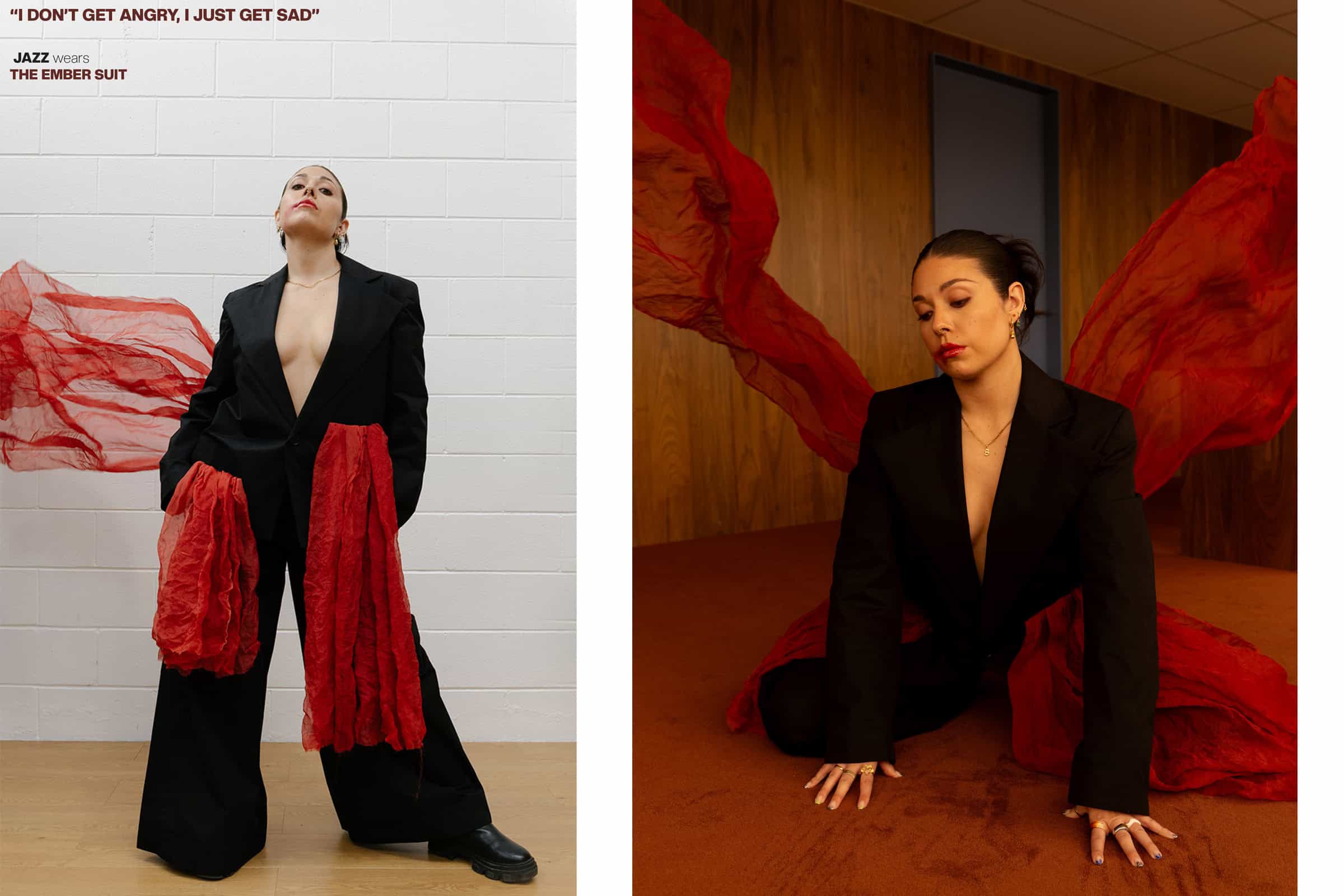
Year 3
Bachelor of Sustainable Fashion Design
Trapped in a misogynistic culture that still distorts and silences womens anger, “I don’t get angry, I just get sad” explores the issues regarding societal expectations and how that plays a role in influencing the expression and suppression of anger in women. It questions why angry men are seen as strong and powerful yet angry women are labelled as hysterical and emotional, and whether this suppressed anger has a lasting effect upon women’s mental health.
The capsule collection recognizes the relationship between the body and clothing and aims to showcase a space for both vulnerability and strength upon the skin, celebrating the natural body form, not manipulated to please others’ eyes, only herself. The designs reflect on traditionally masculine elements and are then reimagined through a feminist lens, using structured silhouettes and bold details to challenge perceptions and embody the transformation of suppressed anger into empowerment and unrestrained expression.
Viewing anger as a gender-specific emotion, rage is often thought of as a universal human emotion, but its perception can be influenced by gender norms and expectations. Society has conditioned us to interpret anger differently based on gender. Angry men typically are associated with masculinity, using it to assert authority and control, while female rage is only seen as acceptable when it is more restrained, calm, and composed. “I don’t get angry, I just get sad”, a phrase most women have used is designed in response to this injustice and aims to empower and advocate for the vital need of healthy expressed rage in all women.
For many women, suppressed anger can stem from multiple issues like systemic inequality, gender based violence, reproductive rights, objectification, intersectional challenges and workplace discrimination. Suppressing anger towards these issues can be a subconscious response to societal pressures for conformity which can lead to various types of diseases or conditions like disordered eating, panic attacks, autoimmune disorders and depression.
As social media becomes more prevalent, only now can we see primarily this generation of women finding solidarity, empowering one another, and collectively pushing for change. This collection aims to communicate the depths of womanhood, her strength, pain, and beauty of navigating through a world that keeps wanting to silence her.
